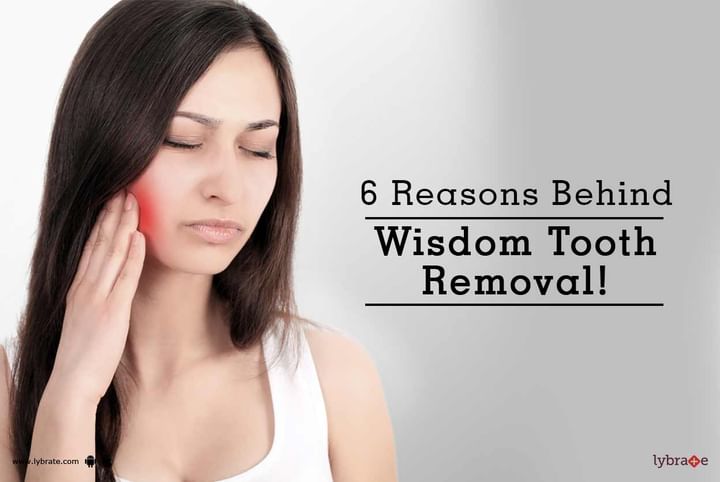6 Reasons Behind Wisdom Tooth Removal!
The last molar teeth in the mouth are called as wisdom teeth. While in some people they erupt completely into the mouth and function with no problem whatsoever, in others, they remain embedded in the bone, erupt incompletely, erupt at an angle, or are covered by bone or a flap of tissue. They are absent in many.
Of late, dentists recommend removal of wisdom teeth, more a preventative than remedial measure. Some of the reasons for wisdom tooth removal are listed below-
-
Impaction: Often, wisdom teeth do not have enough space to erupt in their normal position. This can only be evaluated properly on an x-ray. If the x-ray shows that the tooth is unlikely to erupt because of being blocked by a root or bone, this needs to be removed.
-
Pericoronitis: The tooth partially erupts into the mouth but is covered by a flap of gum. This attracts food and bacteria to accumulate, leading to decay and infection, a condition called as pericoronitis. Very common in the lower wisdom teeth, it leads to severe tooth pain, painful swallowing and swelling of the lymph nodes. This is the most common cause for wisdom teeth to be removed. An x-ray will reveal the tooth to be infected and sometimes periapical abscess may also be present.
-
Cysts: Impacted teeth can develop fluid-filled cysts which can cause severe and even permanent damage to the jaw bone, adjacent teeth and nerves. Dentigerous cysts are the most common type.
-
Alignment: Misaligned wisdom teeth exert a constant mild pressure on the adjacent teeth which can hamper the alignment and reverse the effects produced by braces. The bite may be altered also, thereby necessitating removal.
-
Adjacent Tooth Damage: If the malposed wisdom tooth is causing pocket formation or decay in the adjacent teeth, it is time to get them removed.
-
Recurrent Sinus Infections: With their proximity to sinuses, there could be constant pain and pressure and infection of the sinuses. This is another indication for their removal.
However, not all wisdom teeth need to be removed. If they have erupted fully, are healthy, produce a good bite, and can be cleaned easily, they do not require removal.
During the teenage years and through 20s, check with your dentist on the health of the wisdom teeth. X-rays can be taken to monitor them and for early identification of problems. If they need to be removed, it is easier to take them out when you're young. The bone surrounding the impacted tooth is less dense, and therefore easier. The ability of the body in general and the jaw bones in particular to heal is also better at a younger age.



+1.svg)
